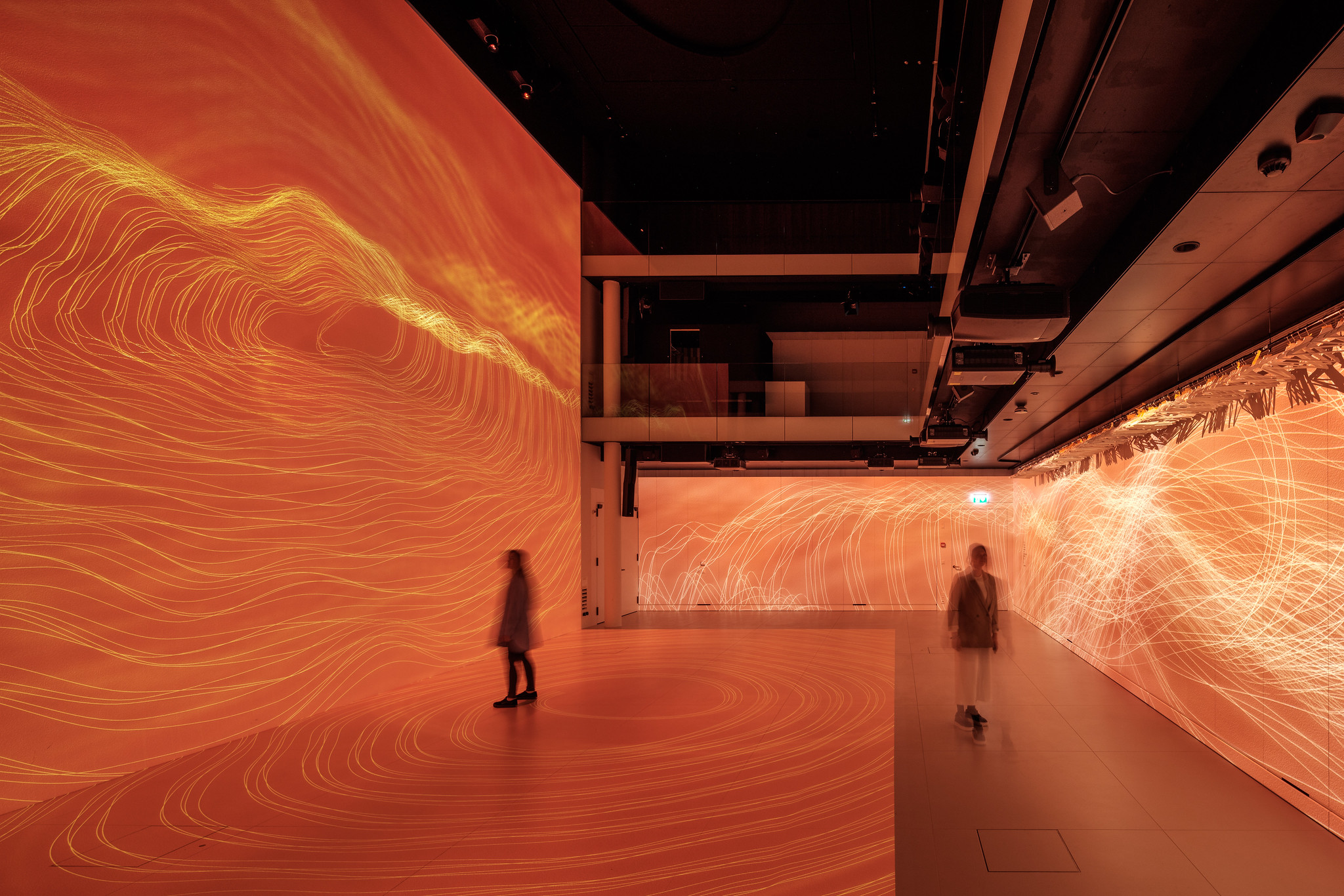Technology as the third pillar of Ars Electronica was reflected in 2023 in projects ranging from Linz to Shanghai, from AI to card games and from local industry to international space travel.
The year 2023 was characterized – not only for Ars Electronica – by extraordinary advances in the field of artificial intelligence, which either already have or will have an impact on all of life. This year, perhaps even more than in other years, these advancements are the basis for a wide range of technological and artistic developments at Ars Electronica. When it comes to the development and implementation of new technologies, two divisions at Ars Electronica are at the forefront: Ars Electronica Solutions and Ars Electronica Futurelab. The mantra that has shaped the work in these areas and will continue to do so in the future is: experimentation, development and storytelling. This is where abstract ideas are transformed into tangible realities, whether for in-house productions such as the redesign of the Compass Reloaded exhibition or for customers from business, science and research all over the world. Here, the imagination is stimulated and discussions about the future of technology and its role in society are sparked.
Join us as we look back on a year of groundbreaking achievements and look forward to a future characterized by the symbiosis of art, technology and society that defined Ars Electronica 2023 and will continue to define it.
Laboratory and atelier of the future
The Ars Electronica Futurelab is a laboratory and atelier for systems of the future. As Ars Electronica’s think-and-do tank, it always places people at the center of research and considers the social aspects of technological developments – such as artificial intelligence, robotics, media architecture, interactive technologies, new forms of aesthetic expression or swarm intelligence – and their impact on the future of society.
The Ars Electronica Futurelab is working together with Toyota Coniq Alpha in Japan on the “Data Art & Science Project”: this is where the analysis of data meets artistic perspectives, interdisciplinary collaboration and will also be incorporated into university curricula in the future. The first projects, which were presented at the Ars Electronica Festival 2023, aim to create completely new insights into and a deeper understanding of topics such as health, biodiversity and climate change.

“missimo: Your Mission Tomorrow” is a project by the charitable Kaiserschild Foundation for children aged eight to ten. Developed by the Ars Electronica Futurelab and operated by the Ars Electronica Center over the next few years, missimo offers many experiments on topics such as AI, robotics and programming. missimo reaches schools in rural areas throughout Austria by truck, and the sustainable concept also includes teacher training and workshop kits for the classroom.
One of the Salzburg Festival’s goals for the celebrations to mark Reinhardt’s 150th birthday was to resurrect theater magician Max Reinhardt’s acclaimed “Faust” production from 1933 to 1937. The Ars Electronica Futurelab created the virtual reality application “Faust VR” for this purpose: a unique experience thanks to an elaborate digital reconstruction of the famous stage set of the Felsenreitschule.
“Future Teams” is a joint research project by Ricoh, Art and Program and Ars Electronica Futurelab. The central question: How can we cultivate extraordinary teams of the future that include different beings from robots to microorganisms? The resulting Future Buddy Platform was presented at the Ars Electronica Festival: Robots that look after the well-being of team members, but thanks to AI can also actively participate in the creative process.
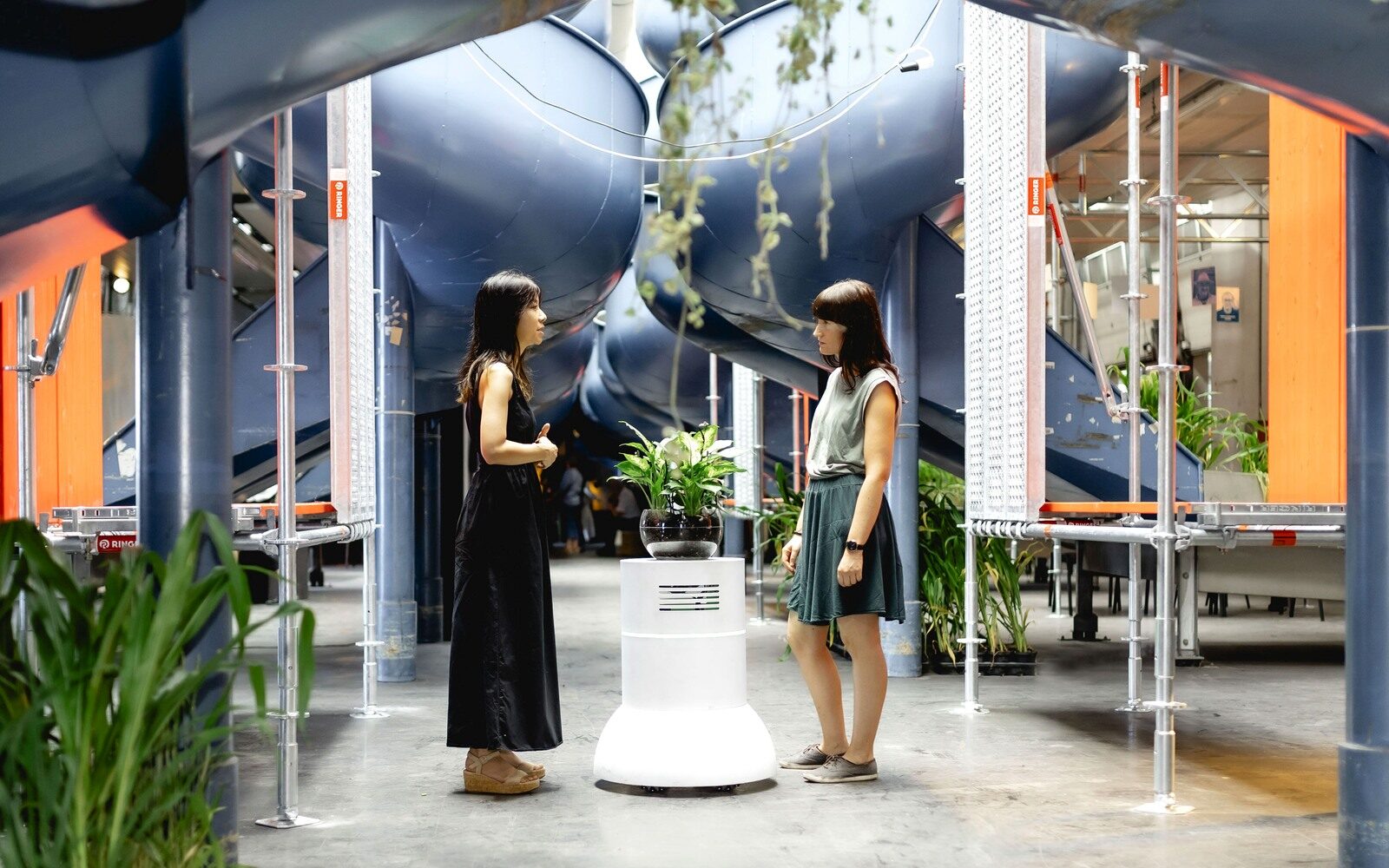
“Deep Sync” creates an interactive playground for sound and visuals in the immersive environment of Deep Space 8K at the Ars Electronica Center. The focus is on the heartbeat of every human being, which is artistically represented with sounds and visualization. In this way, the project combines human biodata with technological and conceptual innovation. Deep Sync is one of the two winning projects in the Ars Electronica Futurelab‘s internal Ideas Expedition 2023 competition. The intergenerational future game “Bridge 2040” also received an award.
Developer of experiential worlds
Ars Electronica Solutions conceives, designs and implements interactive and multi-sensory worlds of experience. They develop creative, individual solutions for temporary and permanent public exhibitions, brand landscapes, trade fairs and events. Solutions’ productions use all kinds of state-of-the-art media technology, but this is never the main focus. Technology is always just a means to an end, it helps to tell stories in a way that touches and inspires people.
This year, these stories ranged from a multimedia hall in a Swiss hotel to the export of the popular Deep Space format to Shanghai, the design of an ESA multimedia center, the largest public telescope, the Space Eye, and innovative show concepts for industrial companies such as BÖHLER and KEBA.
With the opening of the Neuro Campus Hotel DAS MORGEN in Vitznau, Switzerland, Ars Electronica Solutions created a versatile multimedia hall with state-of-the-art technology. Based on the proven technology of the Deep Space 8K at the Ars Electronica Center, this room is the second Deep Space outside of Linz after Cubro Negro in Centro de Sinaloa, Mexico. Ars Electronica Solutions also developed two customized applications for it.
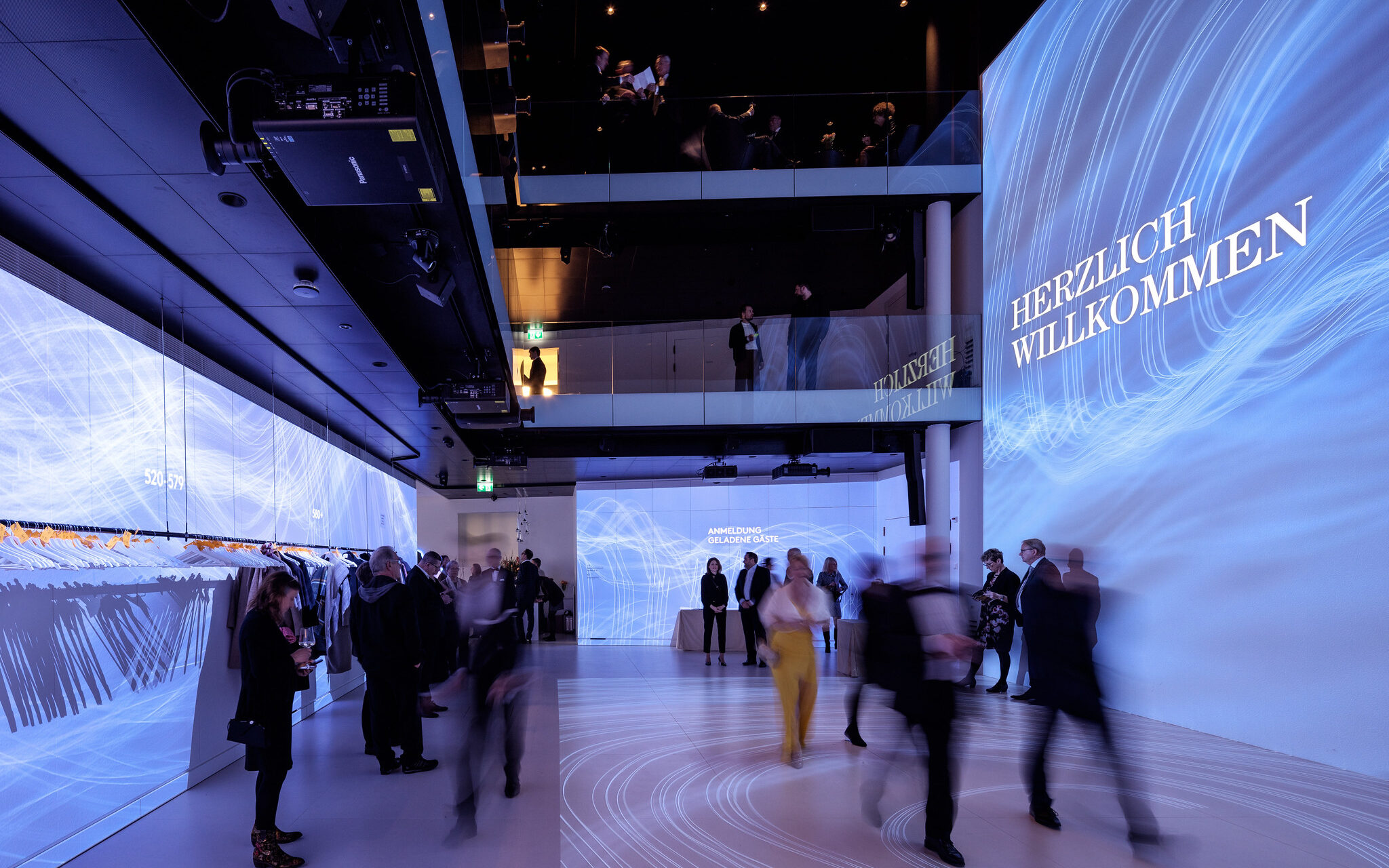
After Cubro Negro in the Centro de Sinaloa, Mexico, and the multimedia hall in the DAS MORGEN hotel in Vitznau, Switzerland, the fourth Deep Space was installed in the West Bund Museum, Shanghai, in December. More than ten applications developed by Ars Electronica will now also be visible in China.
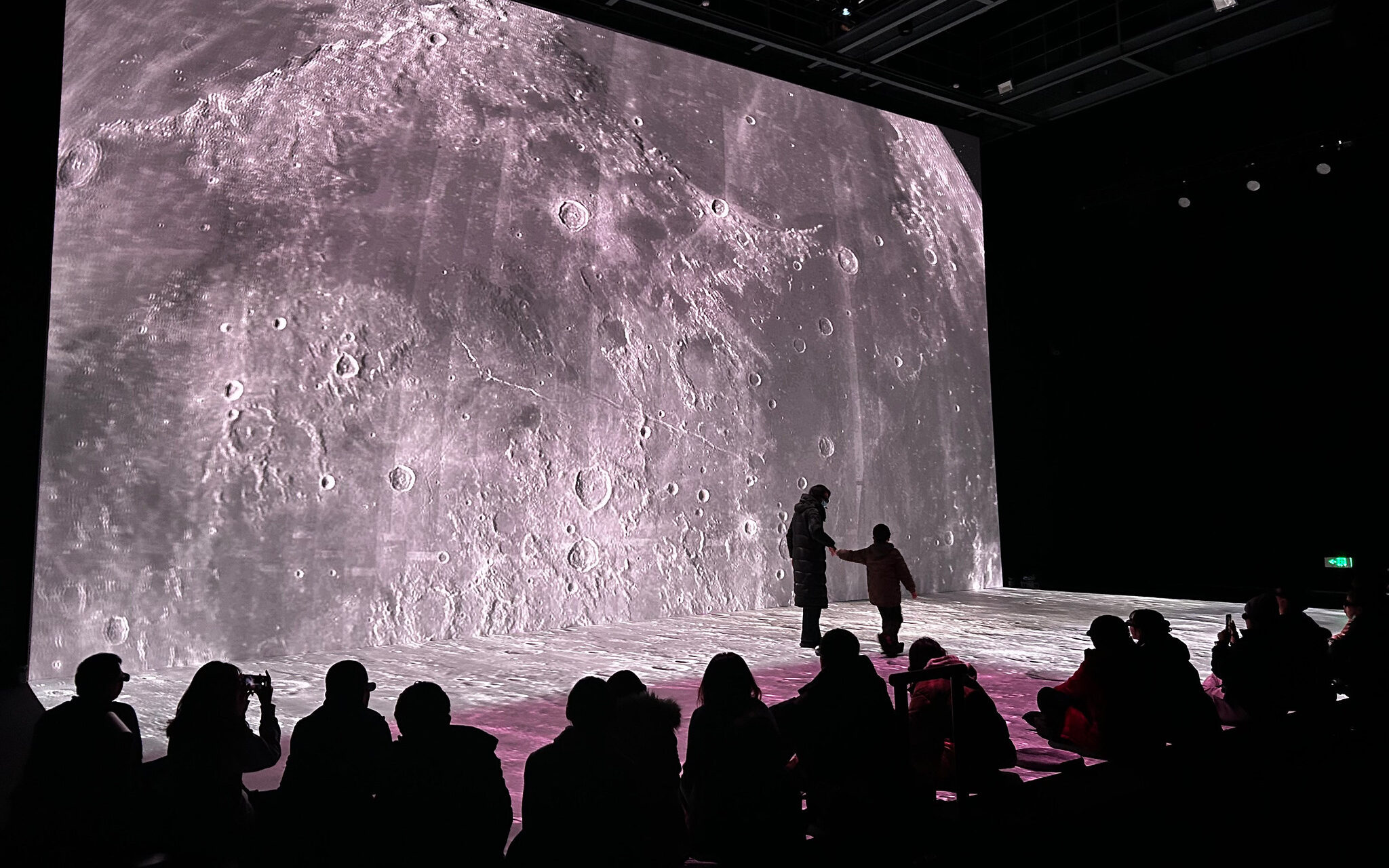
ESA-ESRIN in Frascati, Italy is dedicated to ESA’s earth observation activities and is also the European center of excellence for the use of earth observation missions. Ars Electronica Solutions co-developed a multimedia center from a former ESA control room. The ESA ESRIN Visitor Center impresses with satellite images, real-time data transmission and a Vega-C launch experience.
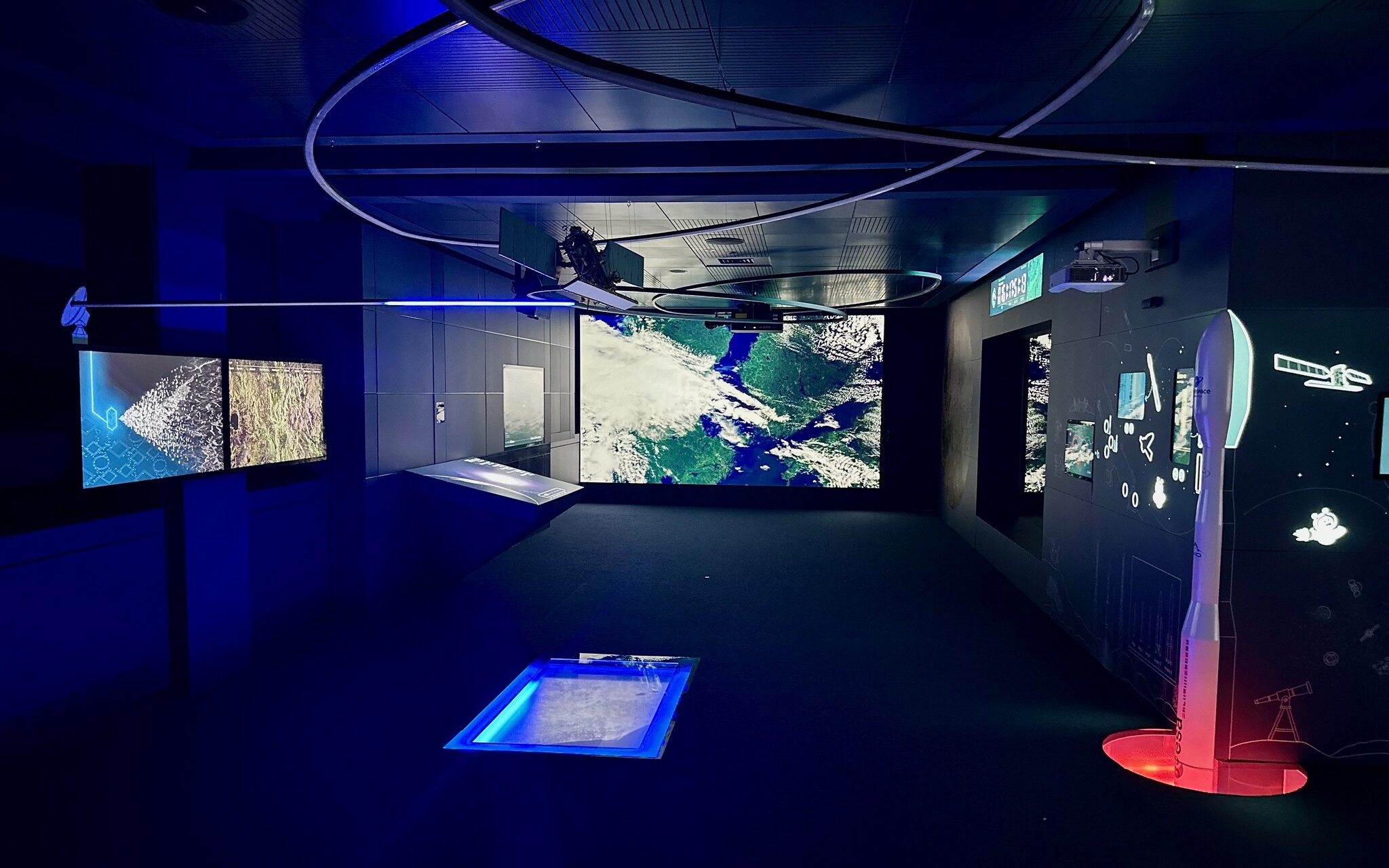
In September, the multimedia visitor center “Space Eye” opened in the Gantrisch Nature Park near Bern. It presents current research on space and the environment and provides access to the largest public telescope in Switzerland. In collaboration with earth observation experts from the German Aerospace Center (DLR), Ars Electronica Solutions contributed special developments to create interactive and educational experiences for people of all ages.
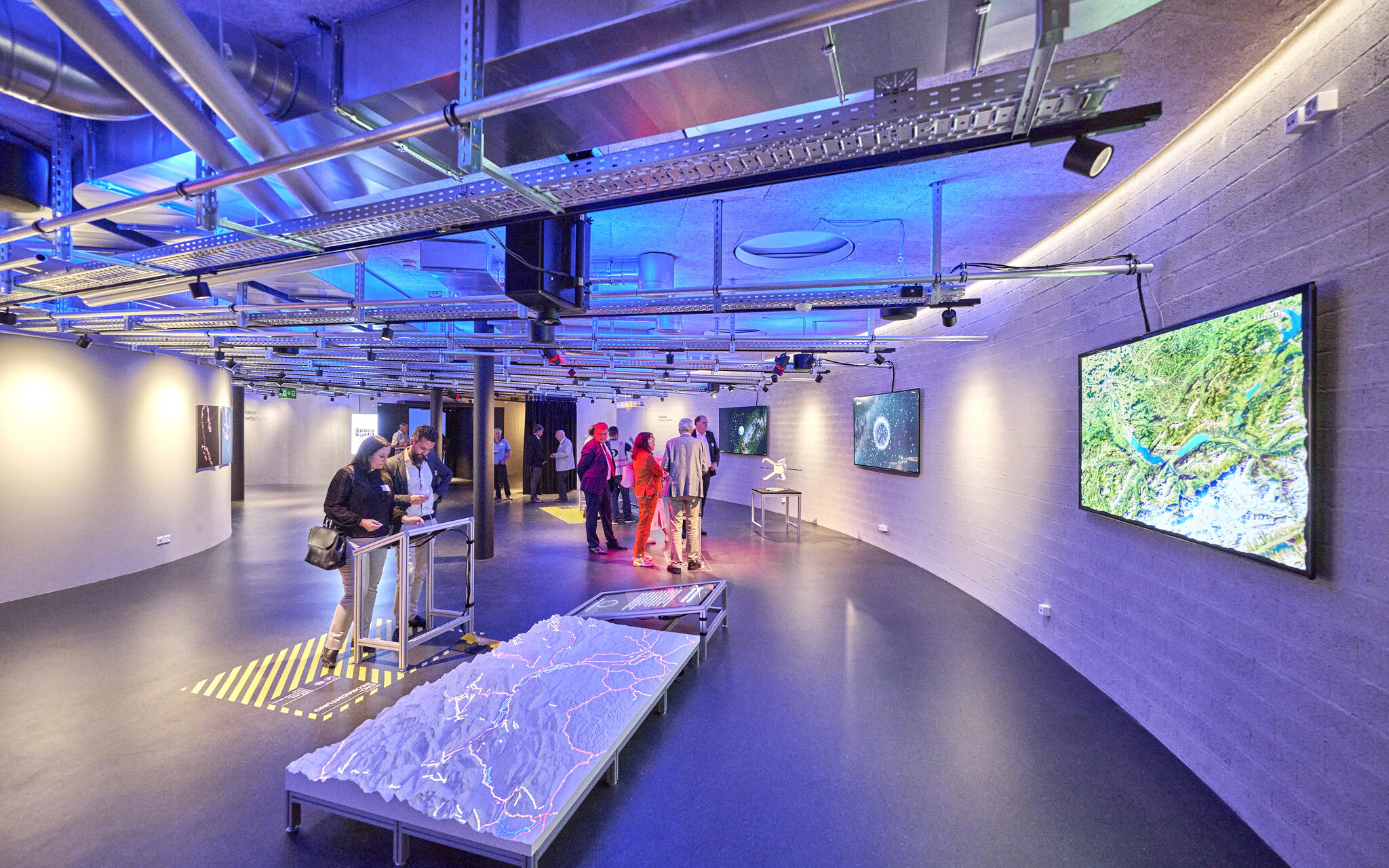
The “Salon International de l’Aéronautique et de l’Espace” (SIAE) in Paris, Le Bourget, is one of the world’s largest aerospace trade fairs. Ars Electronica Solutions designed the ESA Space Pavilion, which presented ESA’s central tasks and missions. The interactive presentation with artifacts, light and sound offered visitors a fascinating and informative experience.
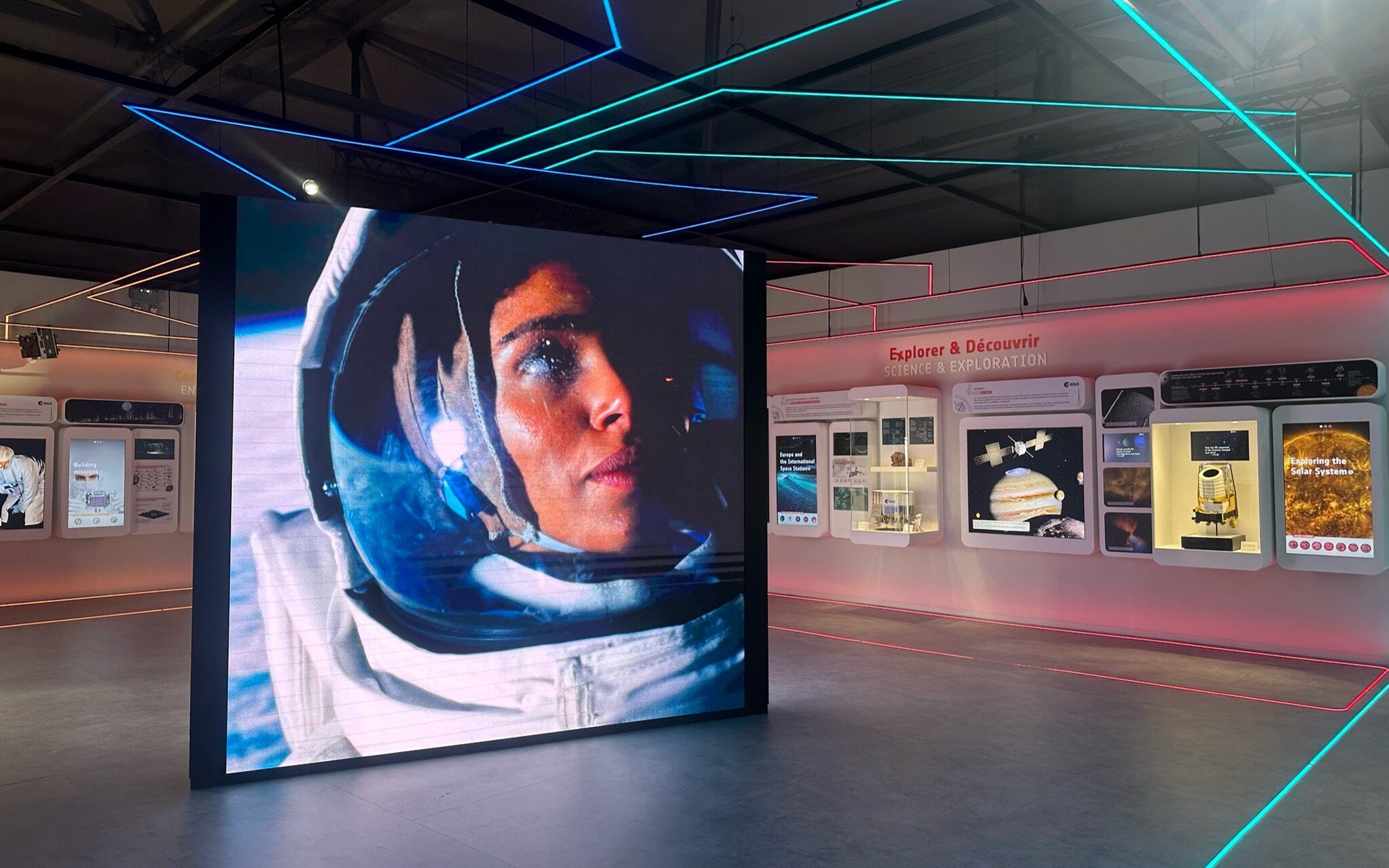
Founded in 1870 as a hammer mill in Kapfenberg, the voestalpine steel plant BÖHLER opened its most modern production facility in the world on October 18. Ars Electronica Solutions staged the brilliant opening event with an individually developed show concept that included a factory hall staging, diverse visualizations and an atmospheric sound design – and brought 600 opening guests closer to the company history of BÖHLER Kapfenberg.
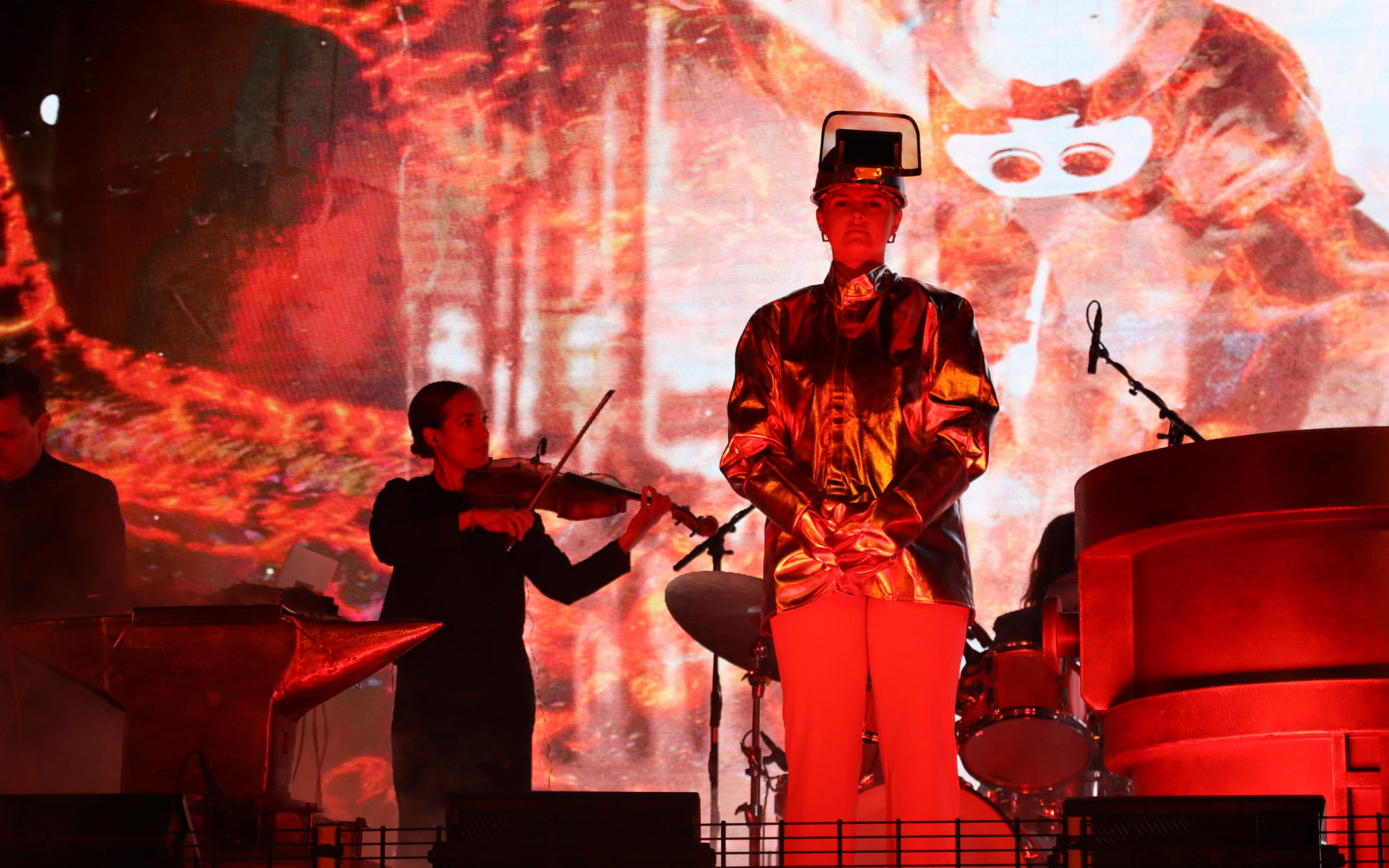
It has been four years since the Ars Electronica Center opened its doors under the motto “Compass – Navigating the Future”. After the experience of a pandemic that led to a massive push towards digitalisation, it is now time to “recalibrate the compass”. Topics such as artificial intelligence, neuro-bionics, genetic engineering, biotechnology and global change are more relevant than ever. New technological developments raise new questions about their impact on our daily lives and their consequences for us as a society.In May, the Ars Electronica Center opened the new exhibition “Compass reloaded! Navigating the Future”. With the help of the newly calibrated compass, we navigate through current topics of the time and discover newly adapted areas.
2023 at Ars Electronica has shown that technological advances can be a driving force behind artistic and social change. In this era of technological renaissance, we are actively shaping a future in which innovation and creativity merge seamlessly without ignoring the human being.
If you would like to join us on this exciting journey next year and become part of the Ars Electronica platform, you are cordially invited to follow us on our social media channels such as Mastodon, Facebook, Instagram, LinkedIn and YouTube, to subscribe to our newsletter or to visit us at the Ars Electronica Center.
